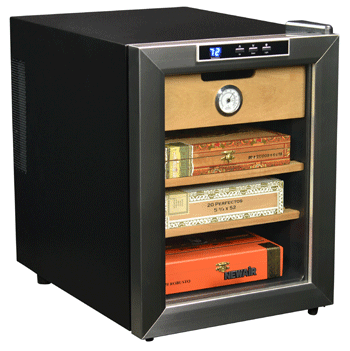Are Cuban Cigars Worth the Hype?
For the first time in fifty years, Americans can legally bring Cuban cigars back into the country with them, though only if they’re coming directly from Cuba and only so long as they’re not bringing back more than $100 worth. Considering most Cuban cigars sell for $20-$50 a stick, that’s not a lot of cigars, so we started wondering, are they worth the effort? Can Cuban cigars really live up to the hype? We tracked down all the info we could find on Cuba, Cuban cigars, and the Cuban cigar industry and here’s what we found.
The Climate
Tobacco is a very finicky plant. It’s extremely susceptible to warmth, cold, rain, and sun. All of these elements have to be balanced just right in order to create the broad, lush leaves that give cigars their rich, earthy taste. There are only a few places in the world with the right conditions, and Cuba is one of them. It’s located just south of the Tropic of Cancer, so the temperature is pretty constant year round, about 77°F on average, and it receives a large amount of rain and sunshine, just what you need to grow good tobacco leaves.
The Humidity
If you’ve read our article on How Moisture and Humidity Affect How You Smoke, then you already know how important humidity is to finished cigar. What you may not know how important it is in the cultivation process. After tobacco’s harvested, it has to be cured and fermented in order to eliminate the chlorophyll and release its flavors and aromas. If the humidity’s too low, the leaves will be too dry to reach the right temperature for fermentation. If it’s too high, the leaves will get too hot during fermentation and overcook.
The right humidity also means the leaves will have the right moisture content when they’re rolled, so they won’t burn too hot or too cold. Cuba’s humidity levels are pretty good, about 79 percent, not too high or too low. In fact, they’re the basis for the 70-70 rule you use in your cigar humidor at home.

The Soil
Tobacco’s flavor comes from the soil it’s grown in. Cuba’s soil is loose, sandy, granular, and loamy – not suitable for most farm crops but ideal for tobacco. The best soil in Cuba is in the Vuelta Abajo, where you’ll find unusually high deposits of iron, quartz, and clay. It’s what gives Cuban tobacco its unique, peppery taste, and because soil conditions can’t be duplicated, it’s a taste you won’t find anywhere else in the world.
The Verdict
There’s no doubt Cuba produces some of the best tobacco in the world, but there’s more to a good cigar than good tobacco. Next time we’ll take a look at the Cuban cigar industry and some of the struggles it’s faced since the revolution.
Got any experience with Cuban cigars? Leave a comment and tell us about it. If you’d like to read more, check out our full length article – Why Cuban Cigars Are so Good.

The post Are Cuban Cigars Worth the Hype? appeared first on NewAir.com Knowledge Base.



0 comments